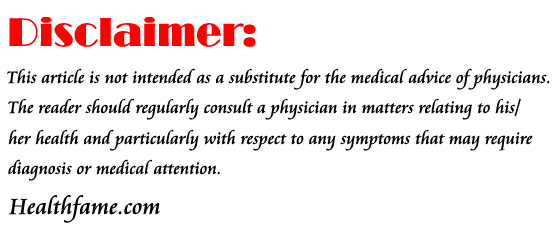Folate (folic acid or vitamin B9) is a water soluble vitamin, and has a very important role in many bodily functions. This vitamin is particularly important in cell division and growth period. Children and adults require folic acid to produce red blood cells and prevent anemia. Folic acid is essential for pregnant women, because it will prevent neural tube defects (NTDs in babies), namely spina bifida (abnormalities of the spine) and anencephaly (a brain disorder which is not formed). With sufficient intake of folic acid in the period before and during pregnancy is about 0.4 - 0.8 mg per day, the risk of NTDs in babies can be reduced up to 80%. Women who plan to become pregnant should consume folic acid is enough, at least 4 months prior to pregnancy because of the risk of folic acid deficiency babies born with defects in the nervous system (brain) or neural tube defects.
Folic acid deficiency can cause the baby to be born with a cleft lip, low weight, down's syndrome, and vascular abnormalities. The destruction of the protective layer of blood vessels can cause the cord off prematurely. Other disorders that may occur is impaired infants and small bowel, the child can not walk upright and high emotion. In girls as adults do not menstruate. In pregnant women, folate deficiency can also lead to an increased risk of anemia, so the mother is tired, listless and pale.
In women who experience morning sickness in excess, are at risk of folate deficiency. Consumption of special milk for pregnant women or women planning a pregnancy, usually have there is the addition of folic acid in it. Consuming milk on the advice of the presentation, can meet the needs of folic acid a day. Folic acid is safe to eat up to 1000mcg limit, and if excessive can give side effects like nausea, decreased appetite, flatulence, and mild allergies.
Leafy vegetables such as spinach, turnips, dried beans and peas, cereals, sunflower seeds, and fruits and vegetables such as potatoes, tomatoes, oranges, are a rich source of folate. Eggs, liver, and whole grain products also include foods that contain folic acid.
Folic acid is very sensitive to light, oxygen and high temperatures. Because also rapidly dissolves in water, if the foods that contain folic acid washed, it often happens folic acid will be swept away by the water. Then it is also often the lack of Vitamin B9. Because it is advisable to consume vegetables that contain folic acid to be consumed in their raw form as in salads.
Folic acid is very sensitive to light, oxygen and high temperatures. Because also rapidly dissolves in water, if the foods that contain folic acid washed, it often happens folic acid will be swept away by the water. Then it is also often the lack of Vitamin B9. Because it is advisable to consume vegetables that contain folic acid to be consumed in their raw form as in salads.
| Age | Male | Female | Pregnant | Lactating |
|---|---|---|---|---|
| Birth to 6 months* | 65 mcg DFE* | 65 mcg DFE* | ||
| 7–12 months* | 80 mcg DFE* | 80 mcg DFE* | ||
| 1–3 years | 150 mcg DFE | 150 mcg DFE | ||
| 4–8 years | 200 mcg DFE | 200 mcg DFE | ||
| 9–13 years | 300 mcg DFE | 300 mcg DFE | ||
| 14–18 years | 400 mcg DFE | 400 mcg DFE | 600 mcg DFE | 500 mcg DFE |
| 19+ years | 400 mcg DFE | 400 mcg DFE | 600 mcg DFE | 500 mcg DFE |
* Adequate Intake (AI)
You've just read Here Are The Dangers of Folate Deficiency For Pregnant Women article, from Deficiencies /
Diseases /
Folic Acid /
Pregnancy
category. You can bookmark this post with URL : https://healthfame.blogspot.com/2015/04/folate-deficiency.html. Thank you!

Writen by:
Mr Soed - Thursday, April 9, 2015





